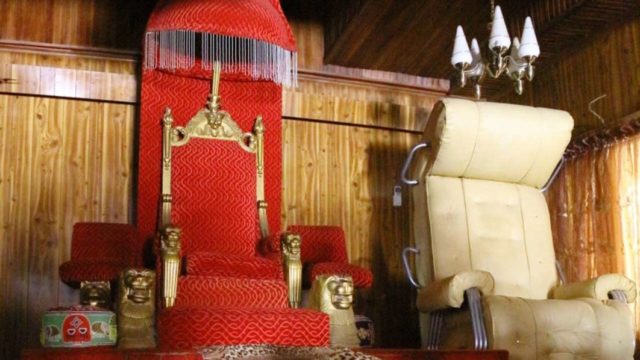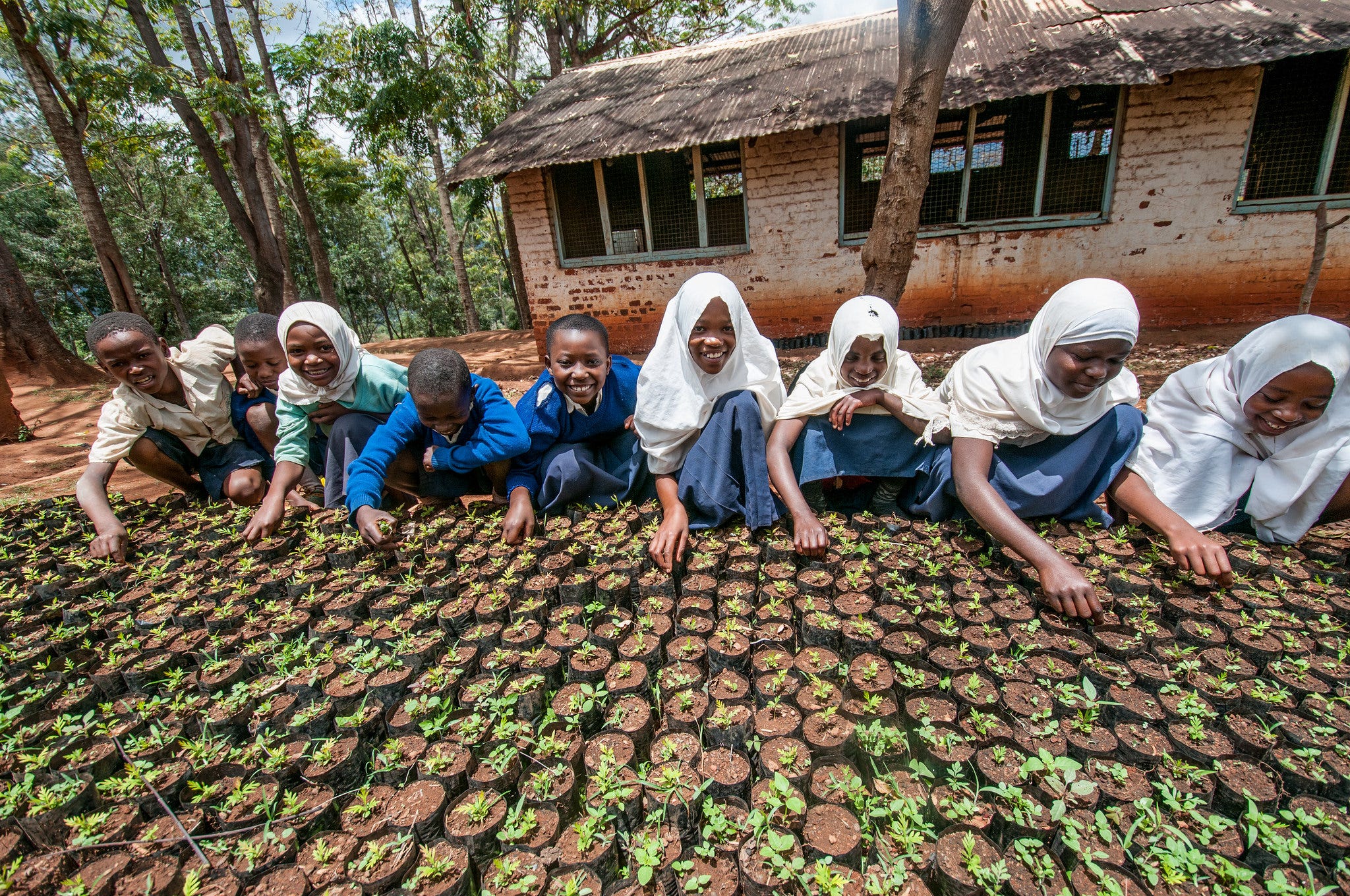(First published in the Vanguard Newspaper of February 21, 2024)
I READ with great delight the statement credited to President Bola Ahmed Tinubu on his vision for food self-sufficiency. On February 12, 2024, The Punch reported the intention of the President to make Nigeria a major food exporter through aggressive mechanised farming. I have been an advocate of mechanised agriculture for several decades. The old adage is that example is the best teacher, hence I have encouraged farmers in the state to engage in agriculture.
I also established Agricultural Expo every October for more than 10 years. The Agric Expo is attended by most farmers from all the 16 local governments in Ekiti State. Our teachers go round their farms and encourage and advise them. We also established a plantation for seedlings. The best farmer in Ekiti is given an award of N2 million and the best in each local government also goes home with N1 million. Other awards also range from N100,000 to N500,000.
We have also established a Youth Empowerment Centre where graduates and other unemployed youths are housed and trained for three months. Those who passed the final examination take away N250,000 as seed money, seedling and other equipment to enable them start their own farms which include fishery, poultry, piggery, snailry and so on. They are encouraged to form cooperative societies to enable them obtain loans from their banks. The success made the university to extend our training of youths to Osun State and Benin Republic. This year the training will be extended to Cote DIvoire.
Agriculture from time immemorial:
From time immemorial, the first and major occupation of man was farming. The first man, Adam, and his wife Eve were created and asked to tend the garden and look after the animals. Farming has the pride of place as the first occupation of man.
Agriculture in Africa:
Africa is a continent blessed with good arable land and climate. Apart from Sahara Desert and Namibian Desert, Africa is blessed with fertile land, rain and rivers for irrigation. Because everybody was interested in farming and everybody had enough food to eat, there was no hunger in the land.
Africa is a continent blessed with good arable land and climate. Apart from Sahara Desert and Namibian Desert, Africa is blessed with fertile land, rain and rivers for irrigation. Because everybody was interested in farming and everybody had enough food to eat, there was no hunger in the land.
This impacted positively on the economy of the continent. Before colonisation, the White men saw the potentials and it is appropriate at this time to quote what Lord Macauley, a British Parliamentarian said about Africa on February 2, 1835: I have travelled across the length and breadth of Africa and I have not seen one person who is a beggar, who is a thief. Such wealth I have seen in this country, such high moral values, people of such calibre
Lord Macauley was right. There was no hungry man in Africa. This is because every African man and woman was a farmer. They had enough to eat all the year round.
There was no market for the sale of agricultural products, rather people adopted the practice of exchanging one farm products for the other which is otherwise known as trade by barter. Indeed, there was no poverty in the land. This confirms what King Sunny Ade said- Ti ebi ba ti kuro ninu ise, ise buse; meaning: when hunger is out of a mans problem, it is easy for one to develop.
Nigeria Before and After Independence:
Before independence, there was no poverty, everybody engaged in farming and crimes were few and far between. When we became independent in 1960, we had selfless and visionary leaders. In the First Republic, Nigeria was the largest producer of palm oil and palm kernel; Nigeria was the second largest exporter of cocoa in Africa. Nigeria was also one of largest exporters of rubber, cotton, groundnut, timber and many more.The economy of this country was at that time one of the strongest in the world. One Naira was equal to one Pound Sterling and One Naira was stronger than one Dollar.
When we became independent in 1960, we had selfless and visionary leaders. In the First Republic, Nigeria was the largest producer of palm oil and palm kernel; Nigeria was the second largest exporter of cocoa in Africa. Nigeria was also one of largest exporters of rubber, cotton, groundnut, timber and many more. The economy of this country was at that time one of the strongest in the world.
Today, One Dollar exchanges for over N1,700 and One Pound Sterling exchanges for over N2,000
Between 1960 and January 1966, Chief Obafemi Awolowo was the Premier of the Western Region. He was energetic, learned and patriotic. He was a firm believer in agriculture. He established Cocoa Research Institute of Nigeria, Forestry Research Institute of Nigeria and School of Agriculture and Agricultural Technology, now the Federal College of Agriculture.
The Cocoa Research Institute established nursery farms for cocoa, palm trees, rubbers and so on. Farmers were advised to purchase seedlings at cheap rates from these institutions.
The take-over of civilian government by the military in January 1966 was the beginning of our problems in agriculture. Hitherto, under Awolowo regime, the local governments were made to invest in the purchase of agricultural implements such as ridgers, ploughs, harrows, harvesters, etc. Farmers were encouraged to form cooperative societies to enable them hire agricultural implements as no individual farmer was strong enough to buy these modern agricultural equipment. In fact, substantial parts of the local government allocation was spent in hiring agric implements.
How Federal Government can assist farmers to invest in mechanised farming
It is my humble view that very few Nigerians, if any, particularly in this time of Naira depreciation can purchase these heavy and expensive agricultural implements. It is my view that the Federal Government should advise local government to use their Federal Monthly Allocation to buy these expensive agricultural implements. The Federal Government can also assist to make special allocation to Local Governments to assist them in the purchase of these equipment.
The equipment shall be assembled in a conspicuous part of the Local Government Secretariat with bold inscription: Agricultural Equipment for Hire. Likewise, I have encouraged the farmers in the Local Governments in Ekiti State to form cooperative societies which will make it easy for them to hire these equipment. I also advise the Federal Government to strengthen agricultural bank financially to enable them assist the Local Government. If this is done, the interest rate will be minimal and farmers will be able to take advantage of the loan facilities.
There is no parent who would ask his son or daughter who has graduated from the university to take cutlass and hoe and start farming. I am proud to say that ABUAD engages in both quality and functional education. I have seen students who have approached their parents to assist them in mechanised farming. Most of them are doing well in agriculture. In fact, my university used to hire some of their equipment on our farm.
The promise of President Tinubu to purchase thousands of tractors in the pursuit of a food self-sufficient Nigeria is a very welcome development. It is my suggestion that these tractors should include other agricultural implements.
The promise of President Tinubu to purchase thousands of tractors in the pursuit of a food self-sufficient Nigeria is a very welcome development. It is my suggestion that these tractors should include other agricultural implements.
I also suggest that these agricultural equipment should be given to all local governments to hire to the farmers.
Agricultural Revolution
Properly managed, I can see revolution in agriculture taking place sooner than later.
I am convinced that the immediate concerns for mechanised agriculture in Nigeria are implements, safety of farmlands and farmers, and resources to execute the agricultural project. Consequently, I recommend that:
1. The Federal and state governments should concentrate on the security concerns in the nation, especially since they now pose a threat to agriculture. Grazing laws should be established and strictly executed to prevent the destruction of farmlands by herdsmen. The Governors are to be held accountable for the security in their states and how they use their security votes.
2. Policies should be in place to encourage agriculture. Government can introduce subsidy on agricultural products generated in Nigeria; this will reduce the selling prices of agricultural produce. This makes them affordable in Nigeria, and available for exportation at favourable prices. This will increase Nigerias foreign reserves and help the economy. Tax reliefs and other economic advantages should be given to agricultural establishments devoted solely to exportation. This will reduce the cost of production and the prices at which the produce will be offered for in the international market, hence giving such products favourable grounds to compete with other products in the international market.
Conclusion
I believe all these are achievable if there is political will and collaboration. State governors should buy into this vision of the President and support farmers with mechanised agricultural implements through the instrumentality of the local governments.
Where government plays it part in the provision of implements, security, financial aids and agriculture friendly policies, people will be encouraged to go back to agriculture.
Where government plays it part in the provision of implements, security, financial aids and agriculture friendly policies, people will be encouraged to go back to agriculture.
Farmers will contribute immensely to the economic viability of the nation, alleviating it from the poverty-stricken debt-ridden state it is in now. This will reduce greatly the rate of unemployment and poverty in the land till we come back to our past as recorded my Lord Macaulay, a nation where there is no beggar, no thief, no poverty.
Babalola, who is a senior advocate of Nigeria, SAN and founder of Afe Babalola University, Ado-Ekiti, ABUAD, is the winner of 2024 African Man of the Year in Food Security.












